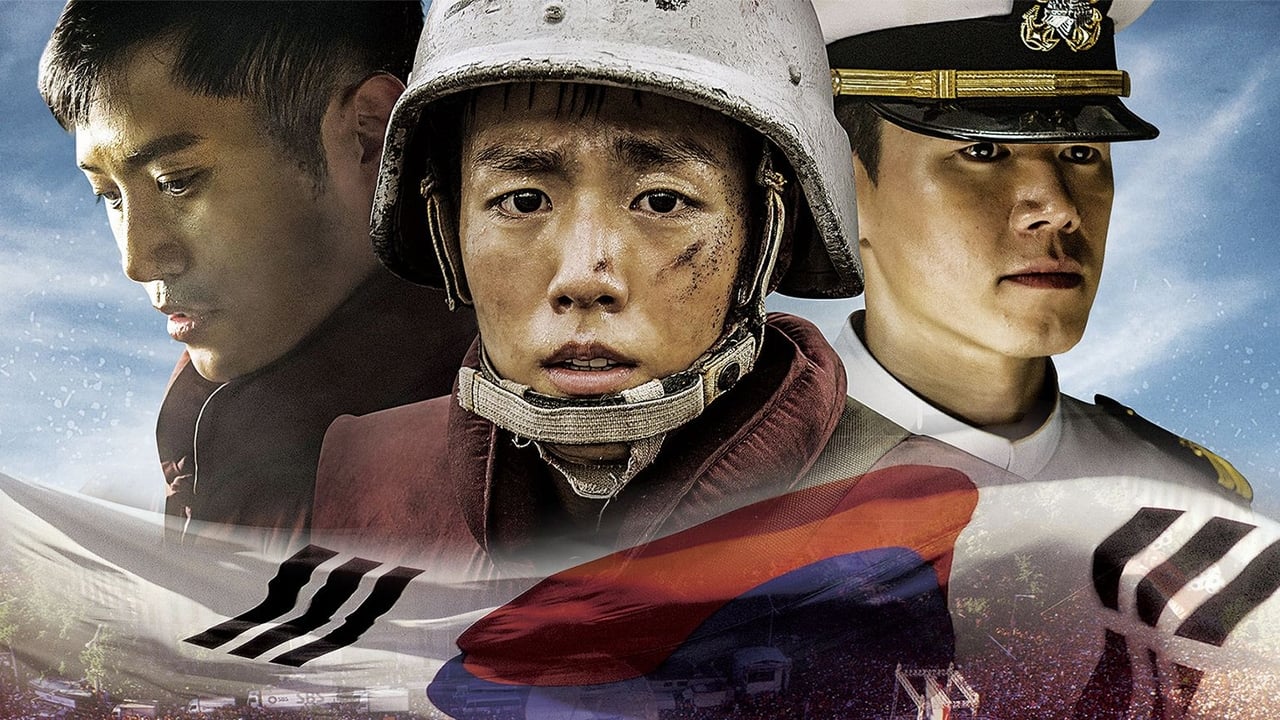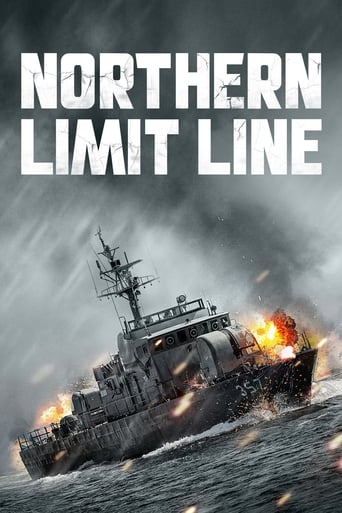Brightlyme
i know i wasted 90 mins of my life.
ChicRawIdol
A brilliant film that helped define a genre
FuzzyTagz
If the ambition is to provide two hours of instantly forgettable, popcorn-munching escapism, it succeeds.
Yash Wade
Close shines in drama with strong language, adult themes.
jimel98
We start by getting to know the men of the 357 Patrol ship of the South Korean Navy. A good bunch of men who, being human, kid around, have fun and generally work very hard and then let off tension as any normal person does, be it sneaking a feast on the bow or cheering on their hometown soccer team. We get to meet their families as well and see just how much those people back home mean to them.We also see what a bunch of punks the North Koreans are. OK, sure, they're not about to be shown as sympathetic characters, but why should they be? They started this entire incident, as they often do. Punks. And when you compare the ships, you see the difference between a modern free society and a backwards one being run by some little runt with something to prove. But I digress.This movie was filmed magnificently and very believably. We (in the Western Hemisphere)often see movies made in other nations and feel they look a little cheesy compared to our slick productions. That's a bit condescending, but I'm sure many who may read this know what I mean. We get to know these guys and like them. They're good people and the ships new Commander starts out a bit of a hard nose, but even he sees that, this likable bunch will do anything for someone they both respect and like and mutual admiration and affection between officers and crew truly brings them all together.Then disaster, and for what? Muscle flexing of the worst kind and this entire sequence, the battle sequence is both exciting and heartbreaking as we see those we've gotten to know being shot up by...well, the bad guys. It's very well done and riveting.I was not fully aware until the end that this was indeed a true story and yup, I teared up. I teared up for the men of 357, I teared up for their families and the horror they all faced in their different ways. I also teared up for the world that we must tolerate nations like North Korea who seem to simply exist only to provoke, incite and threaten. They have no meaning otherwise and this movie, should I say, this story is proof.It's a wonderful movie on a number of levels. I've reviewed this movie from a soapbox, but this movie tells truth in a very dramatic fashion and tells it well. For a history lesson and for a lesson in national terrorism and current events, this movie is a must see.
Bob-45
Caught this on Netflix streaming, while I had "nothing better to do;" and, boy, am I glad I did. "Northern Limit Line" is, clearly the most authentic movie about military life since "We Were Soldiers"; and it the most the most authentic film about shipboard life since "Das Boot", but a lot more entertaining. Based on a two incident, what would be called a "clash" by a news reader in a paragraph on a "Nightly News," "Nothern Line Limit" is, alternately, suspenseful, exciting, grueling and, ultimately, touching. Very well written, directed, photographed, acted and scored, "Northern Limit Line" also contains the longest modern naval warfare sea battle I have seen. Hollywood could certainly learn from South Korea about how to film a sea battle. My only slight quibble is the editing. One or two sequences end abruptly, disorienting the viewer for an instant. The movie could also use a slight trimming, particularly the "port departure sequence" on the day of the battle.Inexplicably, I could not enjoy "Northern Limit Line" on my home theater system. For some reason, the title does not appear on the Netflix "Search" menu on my Roku. Too bad, because the sea battle cries out for a big screen and Surround sound. I give "Northern Limit Line" a "9".
Bobba Fett
Haven't seen that since the Red Army crossed the Volga . It was fascinating to see how courteous Koreans are even in the heat of battle....always bowing and gesturing with the utmost in respect toward authority figures be it a Lieutenant, friend or a family member . The lone gun duel between the two Korean ships was awesome!( I know that's insensitive and I should take the gravitas into account but the movie wasn't made for the History Channel)Such a big Ocean & World and it comes down to a rusting North Korean ship with antiquated gun mounts versus a South Korean ship with a few ack ack guns. The T-34 Tank on the bow of a poor North Korean ship bizarrely stuck in the 1950's versus the affluent navy of todays S. Korea was something right out of the Twilight Zone . The South Korean ship was ambushed at point blank range after a game of Cold War Cat & Mouse along the coastal DMZ (So I learned some History Channel trivia)Now the drama did get a bit hysterical but I've noticed that in many Asian movies. So I just went along with the cultural differences with an open mind . What was different between a Western war movie and an Asian? No drunkenness, no romantic side story, no smart-ass multicultural sailors ...just pure patriotism in a fair knife fight on the open sea. If I was South Korean I would be proud and it would bring a tear to me eye....but as an insensitive lout I thoroughly enjoyed this bloody swashbuckling adventure .
wbs-855-141102
Northern Limit Line is a portrayal of the 2002 "Second Battle of Yeonpyeong" (the first having been a somewhat similar encounter a few years earlier) in which North Korean warships attacked two South Korean patrol boats in disputed waters on the west coast of Korea. (The title refers to the maritime boundary that (in the US and ROK view) was established in the 1953 armistice, but which is not accepted by the DPRK.) Some of the external reviews complain that the film is bifurcated -- the first part establishing the personalities and interactions of the crew, and the second part dealing with the battle itself. This, while accurate, seems to miss the point: The message of the film is that a nation's battles are not fought by either flawless heroes or by oppressed victims. Rather the film presents a ship's crew that is both a proud and disciplined unit controlled by a hierarchical order of command and a group of individuals with their own ambitions, dreams, fears, friendships, and dislikes. When a unauthorized party or watching a soccer game on an unauthorized link is interrupted by a general stations drill, the sailors show they are displeased, but they go to their stations. In fact, my sense was that, in contrast to the reviewers' opinion it is the first part of the film, not the second to which non-Koreans and those of us who have never served in the military should pay most attention. The concept of showing the character of relationships in a military unit is pretty much a standard war movie device, but what makes this special is that the relationships are distinctively Asian. True, there are resemblances to how any collection of young men (and int the film, also a young female officer) in a military unit move between the highly structured military role and being typical late adolescents. But in a way that is hard to define, but comes across clearly, there is a special Asian (and presumably particularly Korean) character to the interrelationships -- the way they talk, the things they seek, what annoys them, the way they trick the system in which they nonetheless take pride. In my view, without that establishment of context, the second part --the battle itself - would be just another action sequence and much less involving for the viewer -- especially, one suspects, for a Korean audience. We come to care deeply about what happens to these kids when the North Korean ship turns a routine encounter at sea into a pitched battle. The combat scenes are presented with a candor and explicitness about what war is really like-- the chaos, the terror, the determination, the failures and bitter costs -- that few if any American war flicks would risk. In particular, I have seldom seen a film that is as uncompromisingly honest about what battle wounds look like-- would an American film show, as Northern Limit Line does --the severed arm of one of the central characters lying next to the hemorrhaging stump? Certainly, the film takes a unequivocally pro-South Korea perspective -- it is quite explicitly a tribute to the skill and dedication of the nation's navy. But it is both brutally honest about what war means and, in a rather more low key way, critical of the civilian population who are cheering at a big soccer match while the battle goes on. That the civilian don't know about the battle and pay due honor to their nation's soldiers afterward makes their innocent detachment from the sacrifices of the sailors who are fighting all the more poignant.

